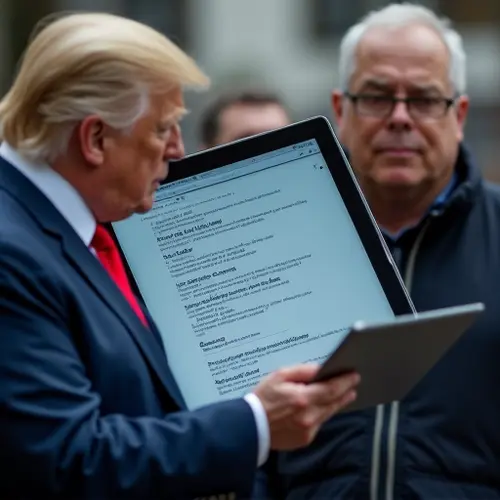
EU Abandons Digital Tax in Favor of Trade Deal with US
In a significant policy reversal, the European Commission has dropped plans for a digital tax on major tech companies, a move seen as a concession to former U.S. President Donald Trump and a bid to secure favorable terms in ongoing trade negotiations.
Budget Proposal Shifts Focus
According to a document obtained by POLITICO, the Commission has removed the digital tax from its list of proposed levies for the EU's next seven-year budget, set to begin in 2028. The decision, made just days before the budget's official unveiling on July 16, marks a departure from the Commission's stance in May when it floated the tax as a means to repay the bloc's post-pandemic debt.
New Revenue Streams
Instead, the EU executive will propose three new taxes: one on tobacco products, another on electronic waste, and a third on large corporations with an annual turnover exceeding €50 million. These measures aim to generate €25-30 billion annually to service the EU's joint debt from its COVID-19 recovery fund.
Strategic Retreat
The digital tax's removal is widely interpreted as an olive branch to the United States, where President Trump has threatened retaliatory tariffs against countries implementing similar levies. By shelving the plan, Brussels hopes to avoid trade tensions and gain leverage in the final stages of transatlantic trade talks.
Other Tax Proposals
The forthcoming budget will also include previously announced plans for a carbon border tax and a share of revenues from the EU Emissions Trading System (ETS). However, in a concession to Eastern European member states, the Commission will claim only a minor portion of ETS revenues, leaving the majority with national governments. Additionally, revenues from the extended ETS covering buildings and road transport (ETS2) will remain entirely with member states.
Unanimity Hurdle
All new EU taxes require unanimous approval from the 27 member states, setting the stage for contentious negotiations over the next two years. Some countries, including Sweden, have already voiced opposition to sharing nationally collected revenues like tobacco taxes with the EU.

 Nederlands
Nederlands English
English Français
Français Deutsch
Deutsch Español
Español Português
Português


